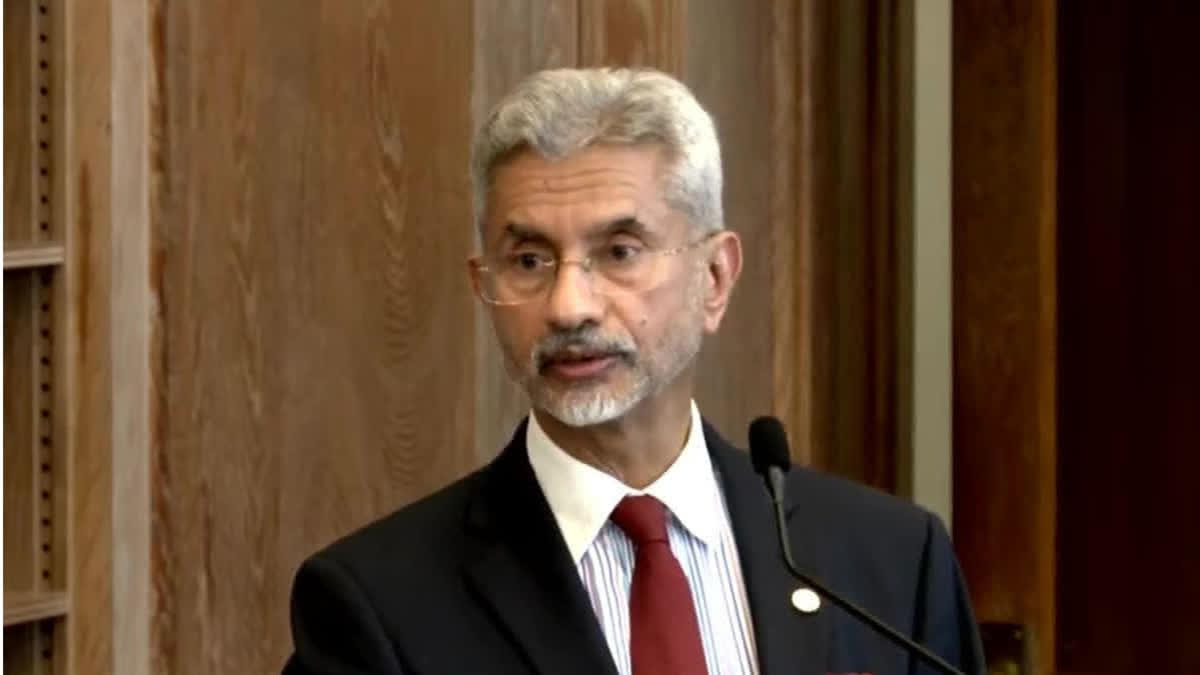New Delhi: External Affairs Minister Dr Jaishankar in his newly launched book titled 'Why Bharat Matters' deals extensively with the transformation in India's foreign policy in the last decade, the relationship with Pakistan, China, and the United States, the emergence of new friends/allies and the Nehruvian era.
In one of his chapters, S Jaishankar while shedding light on India's relationship with Pakistan, China and the United States highlights that "(Pandit Jawaharlal) Nehru's critics felt that he harboured a sense of false internationalism that came at the cost of national interest."
While on the relationship with the United States which has been witnessing a magnificent transformation in the Narendra Modi era, the External Affairs Minister writes that "His (Nehru's) view appeared to be an extrapolation of a left-wing antipathy that was so popular in certain circles of the UK."
Jaishankar also mentions that Nehru's "naivete" on Pakistan and China and his hesitancy/dis-liking against the West is a fact that was being debated by the inner circles of Nehru and especially by Sardar Patel and Shyama Prasad Mookerjee.
On Nehru's dealing with Jammu & Kashmir, he writes that "There were differences between Nehru and Patel on referring the invasion of Jammu and Kashmir to the UN .."
He also mentions that Shyama Prasad Mookerjee was also not happy with Nehru's handling of Jammu & Kashmir and writes, "We all know how damaging it has been economically, developmentally, socially and in terms of national security when Jammu and Kashmir were not fully integrated into the mainstream."
"When that was decisively rectified on 5 August 2019, obviously our national integration emerged that much stronger. But from a foreign policy perspective, what is worth examining is how this issue was taken advantage of by external powers vis-a-vis India."
"In 1953, Mookerjee conveyed to PM Nehru that his handling of the Kashmir problem had neither enhanced our international prestige not won us wide international support and sympathy. He urged Nehru to re-examine policy dispassionately rather than be carried away by false internationalism", the External Affairs Minister wrote.
"The other issue pertains to the hesitation in recognising Israel and establishing full diplomatic relations. Patel was clearly uncomfortable with the vote bank pressures on Nehru and believed that this should not be given a determining say over the making of national policy", he further wrote. Jaishankar also writes that today India traverses those very roads that were earlier rejected by Nehru.
Read more:
- Nepal inks power deal with India; to sell 10,000 MW of electricity in the next 10 years
- India, China continue to engage on diplomatic, military sides for a resolution, says MEA
